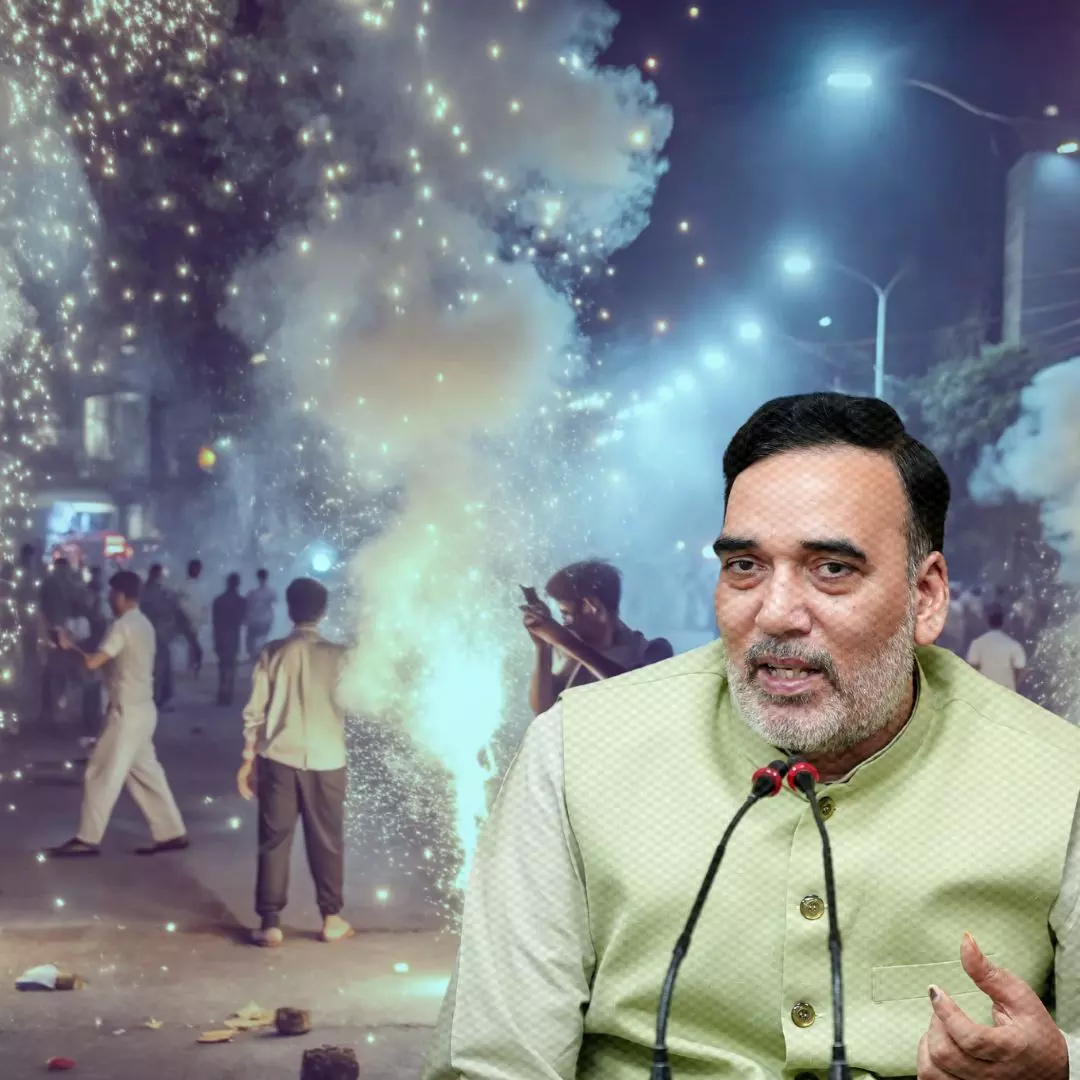
Image Credit: Gopal Rai
Delhi Government Enforces Complete Ban On Firecrackers Until 2025 To Combat Air Pollution
Writer: The Logical Indian Crew
We are an independent and public-spirited digital media platform for Indian millennials. We report news and issues that matter as well as give you the opportunity to take action.
Delhi, 14 Oct 2024 9:25 AM GMT | Updated 14 Oct 2024 9:27 AM GMT
Editor : The Logical Indian Team |
We are an independent and public-spirited digital media platform for Indian millennials. We report news and issues that matter as well as give you the opportunity to take action.
Creatives : The Logical Indian Crew
We are an independent and public-spirited digital media platform for Indian millennials. We report news and issues that matter as well as give you the opportunity to take action.
Delhi's government has announced a complete ban on firecrackers until January 1, 2025, as part of efforts to tackle severe air pollution, particularly during the winter months.
The Delhi government has imposed a complete ban on the manufacturing, storage, and sale of firecrackers until January 1, 2025, in a bid to combat rising air pollution levels. Environment Minister Gopal Rai announced the decision as part of a broader Winter Action Plan aimed at addressing the city's deteriorating air quality, which has recently been categorized as "poor." The ban includes all types of firecrackers and extends to online sales, with strict enforcement measures mandated for the Delhi police. This initiative reflects ongoing concerns about pollution exacerbated by seasonal factors like stubble burning in neighboring states.
Details of the Ban
The order issued by the Delhi Pollution Control Committee specifies that all forms of firecrackers are prohibited across the National Capital Territory (NCT) of Delhi. Minister Gopal Rai emphasized the necessity for collaboration with neighboring states to tackle cross-border pollution issues effectively. As part of the Winter Action Plan 2024, the government will also employ drones for real-time air quality monitoring and introduce measures such as work-from-home policies and potential artificial rain to mitigate pollution levels. The Central Pollution Control Board reported an air quality index (AQI) reading of 220, indicating poor air quality conditions in Delhi.
Context and Background
This ban comes in response to persistent air quality challenges faced by Delhi, particularly during winter months when pollution levels typically spike due to various factors including vehicular emissions, industrial discharge, and agricultural practices like stubble burning. Previous years have seen similar bans during festive seasons, but this year's comprehensive approach aims to address pollution more holistically. The government is also exploring additional strategies such as the odd-even vehicle scheme to further reduce emissions in the city.
 All section
All section














